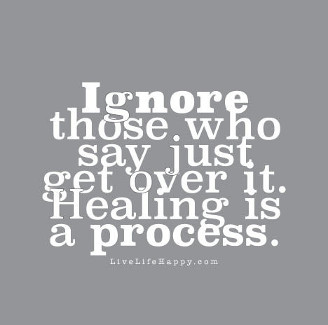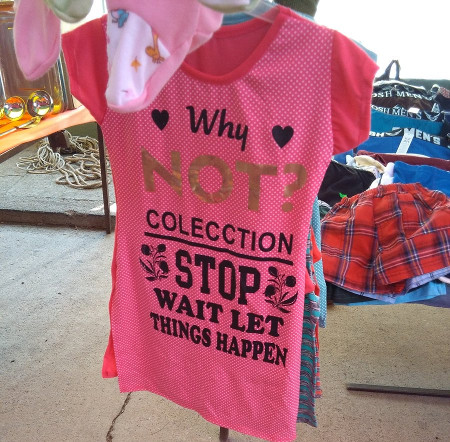The one about mental health
Anxiety. Panic. Depression. These are words that are all too familiar. Situations and emotions that I’ve lived with all my life. I used to suffer in silence… like so many other people, I learned to smile despite the pain. I felt for years that if I admitted my weaknesses, that I would fail, that others would see in me only failure and fragility. It’s not like I just made that scenario up, either; in one particularly bad year in the late 90s, I was fired from three consecutive jobs because I couldn’t function. When I tried to explain why, I was told basically, “Get your shit together.” So I thought that was what was expected of me as an adult: get your proverbial shit together and leave your emotional baggage at home. Except… it doesn’t work like that.

via [Live Life Happy](https://www.flickr.com/photos/deeplifequotes/19271594930)
Most of my life I’ve dealt with one issue or another. Through my teenage years and into my 20s, it was crippling depression. Some days I simply couldn’t function, and I had to use up precious sick days and vacation time just to lie in bed and hope I recovered enough to face the world tomorrow. Eventually through an amazing therapist I was able to identify the sources of my depression and overcome them. It wasn’t easy, but it was something I was proud of when I could finally articulate what was wrong and why. It didn’t make the depression go away entirely, but being able to call it out and see it for what it was allowed me the peace I needed to make it through the day-to-day.
Later in life I’ve realized that constant anxiety is my companion. As I’ve progressed through my career, I’ve increasingly gained more responsibilities, and I’m frequently accountable for projects that are touched by tens of millions customers and represent a lot of revenue for the companies I’ve worked for. This creates a lot of pressure to perform adequately in my role and not make mistakes that could end up costing thousands or millions of dollars. In that sense, the more I’ve succeeded, the harder it’s become to relax. It took many years to admit it, but earlier this year I finally realized that I couldn’t cope with it all on my own.
Counseling was of limited use this time. Thanks to the wonderful tools my previous therapist had taught me, I was able to identify what was giving me so many problems, but no matter what I did, I couldn’t make that constant stress go away. I decided that I couldn’t go on just pretending that everything was alright when it clearly wasn’t, and I wasn’t going to be able to solve the problem on my own. This was another big step for me, as it led to me asking my doctor for help. She was incredibly kind and non-judgmental. (Which you might ask, “Why would she be? She’s a doctor!” My mind doesn’t work like most people’s.) I now take anti-anxiety medication, and have for the past 4 months. It’s completely changed my life. I was really hesitant to start a medication, though. Someone very close to me took medication for depression a few years ago, and it completely changed her personality and led to some strange lapses in judgment. Since then, I’ve been wary of mood-altering drugs. Thankfully, my first-hand experience has been much more positive.
I suppose what I’m trying to say is: it’s okay to not be okay. That was something I wish people had told me a lot sooner. Our society stigmatizes mental health issues to an extreme. Admitting you have a mental health issue to most people is an admission of weakness. Somehow it’s your fault, when it’s really not. We don’t blame people who get cancer (for the most part), but for some reason we blame people who are depressed or suffer other mental health problems. “Why can’t you just get over it?” I heard that many, many times.
You can’t just “get over it.” It takes work. Sometimes (a lot of times) it takes help from outside sources, whether that’s a therapist or pharmaceuticals or a companion animal or whatever. If there’s anything I want you to learn from reading this, it’s that I don’t want you to suffer like I did. If you happen to be one of the millions of people out there (you’re definitely not alone!) who suffers from anxiety, depression, panic attacks, what have you… please ask for help. Don’t listen to people who tell you to get over yourself. It’s not that easy, not by a longshot.

via [@Bootleg_Stuff](https://twitter.com/Bootleg_Stuff/status/886526797059420160)
Don’t do what I did and suffer in silence for years upon years. Take a deep breath, stop for a moment. Let things happen. Don’t fight it alone. It’s okay to not be okay. And it’s also okay to ask someone for help when things aren’t okay.